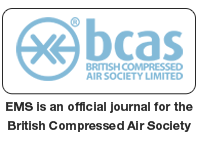The World’s Leading Information Resource For Maintenance & Engineering Professionals.
In the spotlight
In the Spotlight
Revolutionising IO-Link device management: Introducing moneo configure free
In a bold leap towards enhanced operational efficiency and seamless IO-Link sensor integration, ifm electronics are proud to introduce moneo configure free, the cutting-edge tool designed to empower businesses with intuitive…
Denso Steelcoat™ Systems Standing the Test of Time in Pipebridge…
On recent revisits to two Steelcoat 100/400™ System applications in the Northeast of England, Winn & Coales (Denso) Ltd. were proud to confirm that both applications were performing as expected,…
Babcock Wanson Launches New Electric Thermal Fluid Heaters
Industrial process heating equipment and solutions specialist Babcock Wanson has launched the EPC EL range of electric thermal fluid heaters, providing customers with an effective low carbon process heater with no…
Industry News and Products
Early consideration of Quick Opening Closures for FPSOs improves safety…
Offshore production of hydrocarbons is moving into deeper and more remote locations. FPSOs have revolutionized deep-water drilling, allowing operations to produce oil in areas that were not previously viable. The…
Schneider Electric Appoints Rhonda Doyle as VP of Customer Operations…
. Schneider Electric, the leader in the digital transformation of energy management and automation, has appointed Rhonda Doyle as the new Vice President of Customer Operations in the UK and…
ERIKS LAUNCHES TRACK AND TRACE FOR A SEAMLESS DIGITAL CUSTOMER…
Following a period of successful testing and customer trials ERIKS has announced that ‘Track and Trace’ functionality is now available for all its UK and Ireland customers. This new functionality…




















